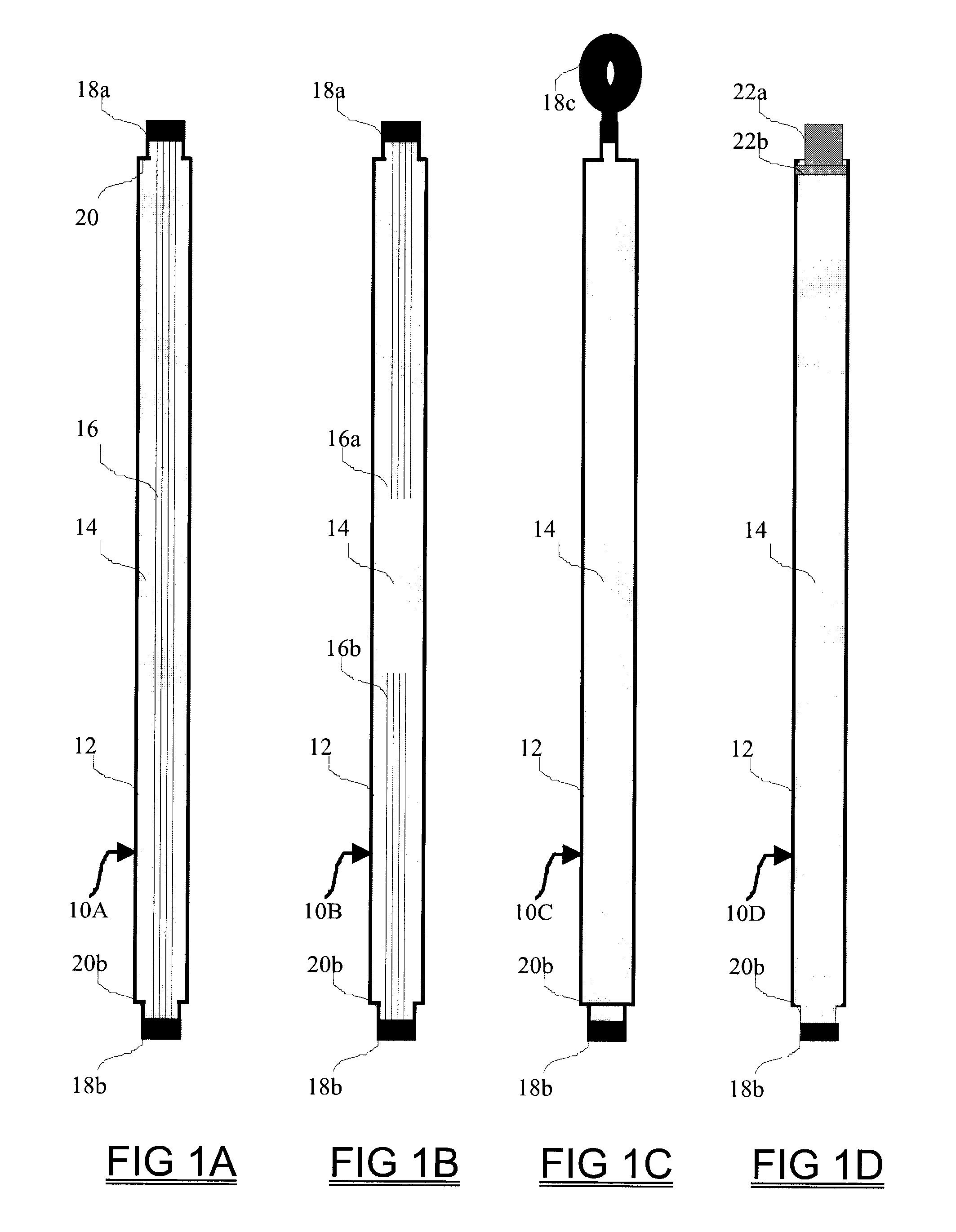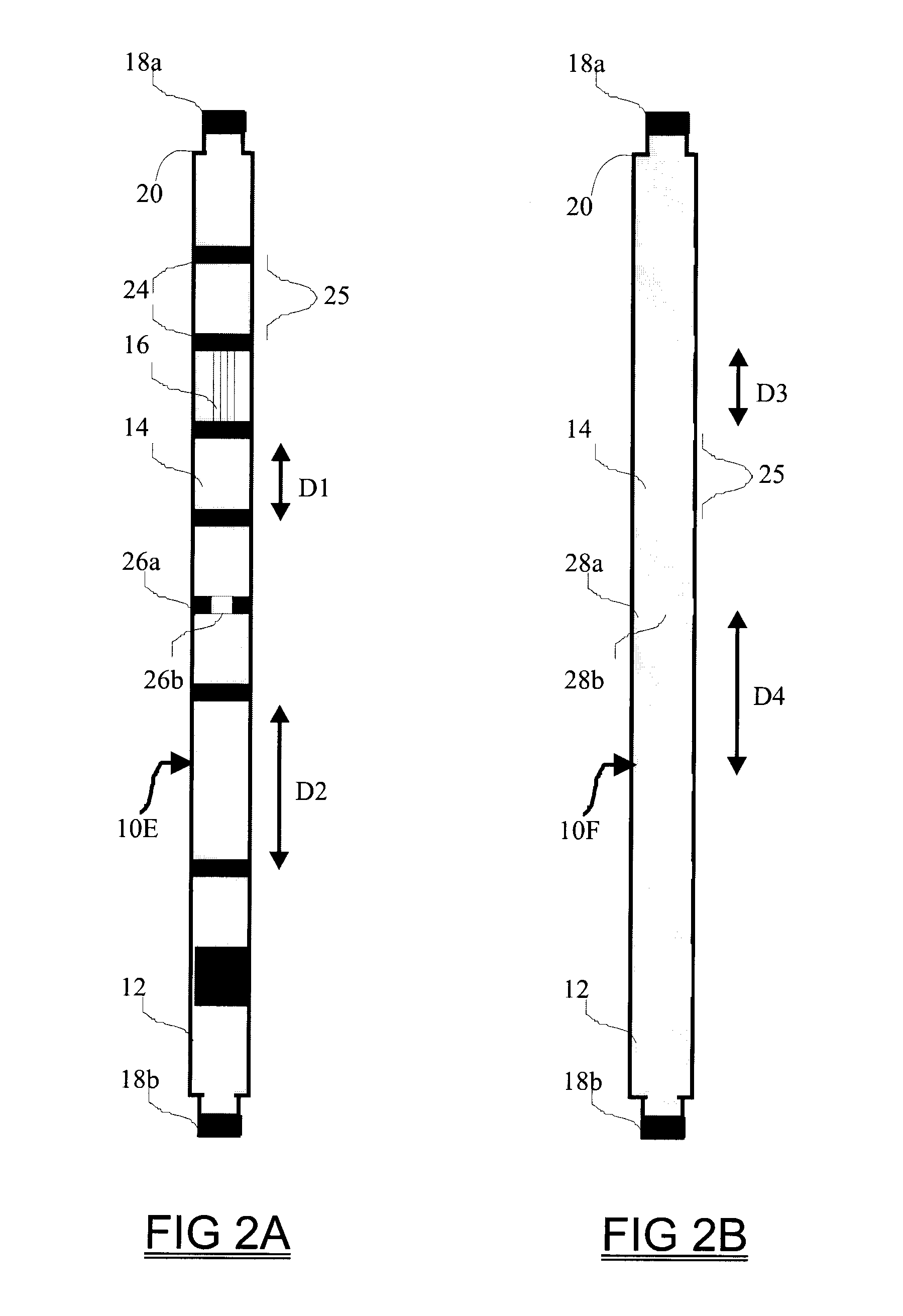Adaptive conductive lead systems
a technology of conductive lead and conductive wire, which is applied in the field of biological signal sensing, can solve the problems of not being able to adapt to the shape of current leads, containing metallic wire conductors that may show unwanted characteristics, and be harmful to patients, and achieve the effect of increasing flexibility
- Summary
- Abstract
- Description
- Claims
- Application Information
AI Technical Summary
Benefits of technology
Problems solved by technology
Method used
Image
Examples
Embodiment Construction
[0033]The definitions of terms written in this specification shall be consistent with the context in which the terms appear and the ordinary broad meaning of such terms as would be understood by practitioners of ordinary skill in the arts relevant to the invention; notwithstanding that, some exemplary definitions (which are illustrative but shall not be considered limiting) are included at the end of the specification.
[0034]FIG. 1A shows an embodiment of the adaptive conductive lead (ACL) 10A which comprises a lead body 12, which is some form of sheath, tube, or liner which is approximately non-conductive, at least on its outside surface, and which contains fluid conductive element (FCE) 14 comprising a relatively electrically conductive and flexible medium such as an electrolytic gel or other type of electroconductive fluid. The body 12 can be made from a vinyl, rubber, plastic, or other flexible / elastic material and may be translucent, transparent or opaque. The lead body 12 prefe...
PUM
 Login to View More
Login to View More Abstract
Description
Claims
Application Information
 Login to View More
Login to View More - R&D
- Intellectual Property
- Life Sciences
- Materials
- Tech Scout
- Unparalleled Data Quality
- Higher Quality Content
- 60% Fewer Hallucinations
Browse by: Latest US Patents, China's latest patents, Technical Efficacy Thesaurus, Application Domain, Technology Topic, Popular Technical Reports.
© 2025 PatSnap. All rights reserved.Legal|Privacy policy|Modern Slavery Act Transparency Statement|Sitemap|About US| Contact US: help@patsnap.com



